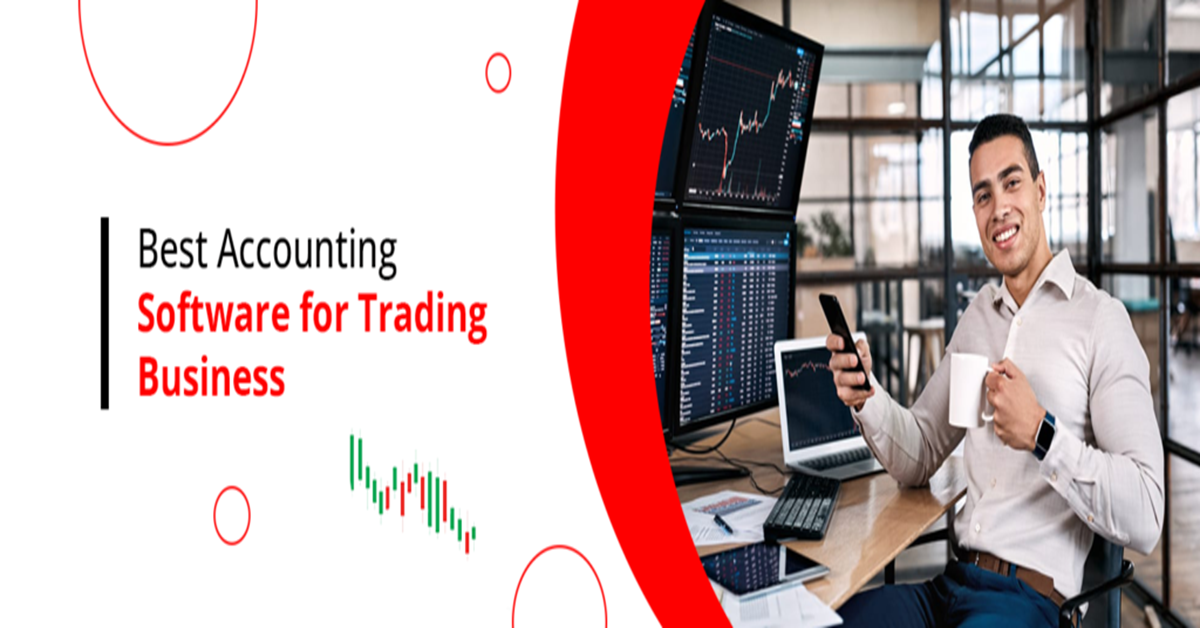What is an Accounting Software?
Accounting software is an invaluable tool for businesses and individuals alike to monitor finances closely. The software simplifies the process of tracking income and expenses, making it far more efficient than traditional manual methods. At its core, accounting software is designed to record and organize business transactions, typically handled by an accountant who’s tasked with managing and reporting on the financial activities of a company. It allows companies to optimize their financial management, closely monitor expenditures, and easily comply with Bangladesh’s tax regulations.
Why do we need Accounting Software for Trading Business?
In Bangladesh, the trading industry is more than just a segment of the economy, it is a vital force that fuels growth, innovation, and connectivity across countless sectors. From swarming ports to the intricate network of local and international trade, this industry powers everything from agricultural goods to advanced electronics. Yet, the path to successful trading is lined with complexities like handling immense transaction volumes, adapting to ever-shifting tax policies, and navigating intricate logistics. For trading companies, accounting is the heartbeat of their financial health, essential for managing cash flow, maximizing resources, and setting the stage for long-term, sustainable growth.
Traditional manual methods, like spreadsheets, often struggle to keep up with the demands of modern trading. These outdated tools can leave room for errors, slow down workflows, and make compliance a stressful, time-consuming task. As the sector grows, the need for robust, automated accounting software like PinTechERP has never been more apparent. These tools don’t just help keep the books in order; they bring real-time insights, simplify complex processes, and enable companies to respond agilely to market shifts. In a fast-paced environment like trading, automated accounting software is more than just an upgrade, it is an essential tool for resilience and growth.
Key Features to Look for in Accounting Software for Trading Businesses
Selecting accounting software involves more than picking a simple tool for recording transactions. Here are some of the key features to consider:
- Real-Time Inventory Tracking
Trading businesses rely heavily on inventory management, and real-time tracking ensures you have a clear view of stock levels, minimizing overstocking or stockouts. Accounts software integrates seamlessly with inventory management modules to provide an accurate snapshot at all times.
- Integration with Sales, Procurement, and Inventory Systems
Accounting Software connects with other business modules to unify sales, procurement, and inventory management. This comprehensive integration enables you to track transactions from procurement to final sales, keeping a seamless record of every business movement.
- Comprehensive Financial Reporting
Financial reports form the backbone of any trading business’s strategy, helping you assess profit margins, cash flow, and cost control. Accounting software offers valuable integrated financial reports, including profit and loss statements, balance sheets, and cash flow reports.
- Automated Accounts Management
It brings complete accuracy to accounting tasks, which is essential for effective bookkeeping. While manual processes are often lengthy and complex, automation simplifies and streamlines bookkeeping, ensuring everything runs smoothly.
- Accounts Payable & Receivable Management
Accounts receivable and accounts payable are essential concepts in accounting. Accounts receivable refers to money clients owe the company, while accounts payable represents the money the company owes to others. Managing the two accounts can help companies to manage their debts. Accounting software should be able to help you manage them accurately.
- Financial Forecasting
Using historical data and trends to project future financial performance, helping businesses anticipate revenues, expenses, and cash flow needs. This proactive approach supports strategic planning, guiding better decisions on budgeting, investments, and resource allocation to achieve long-term goals.
- Multi-User Access and Permission Settings
For growing businesses, multiple employees often need access to accounting data. Advanced multi-user functionality allows specific roles and permissions to be assigned, ensuring sensitive information remains secure while supporting collaboration.
Benefits of Using Accounting Software for Trading Business
Investing in accounting software brings numerous advantages for trading businesses, specifically those facing competition and compliance requirements in the Bangladesh market.
- Streamlining Operations and Reducing Errors
Accounting software minimizes human error by automating data entry and calculations, ensuring records are accurate and up-to-date. This reliability supports efficient operations and helps avoid costly mistakes.
- Enhancing Financial Transparency and Compliance
Accounting software provides clear, audit-ready records that improve financial transparency and streamline regulatory compliance, making it easier to file taxes and stay compliant with Bangladesh’s financial regulations.
- Improving Decision-Making Through Data Analytics
With built-in data analytics and reporting tools, accounting software offers valuable insights that enable you to make data-driven decisions. These insights can reveal areas where cost-cutting measures are possible or identify high-performing product lines.
- Reducing Time Spent on Manual Data Entry
Data entry can be labor-intensive for trading businesses. Accounting software automates repetitive tasks, freeing up time for employees to focus on core activities such as sales and customer service.
How to Choose the Best Accounting Software for Your Trading Business
Selecting the best accounting software is vital for business success. To choose the right accounting software for your trading business in Bangladesh, you can consider the following factors when making a decision:
- Business Size: Determine business size as different sizes businesses like small, medium, or large businesses have different needs.
- Transaction Volume: Determine if the software can handle the volume of transactions your business processes daily.
- Budget: Determine the available budget for software and implementation. It is quite crucial to discuss the budget before further discussions.
- Ease of Use: Select a system that offers an intuitive interface to reduce employee training time.
- Customer Support: Look for software with responsive support, preferably with a local or regional support team familiar with Bangladesh-specific challenges.
- VAT and Tax Compliance Features: Tax compliance is crucial, so ensure the software includes automated VAT handling.
- Cloud or In-House: Evaluating the advantages and disadvantages of both options is a good idea as well.
- Scalability: Choose software that can grow with your business, accommodating new users, features, and transaction volumes as you expand.
To make the best choice, start by researching multiple options, ideally 8 to 10 accounting software solutions. Compare their features, functions, and pricing carefully. You can also reach out to software providers with specific questions to help identify the best fit for your business:
Is the software accessible from anywhere?
Focusing on accessibility is essential. Choose an accounting software that is mobile-friendly, enabling access from anywhere. The best software will feature a robust app that integrates seamlessly with other business tools, supporting smooth collaboration on the move.
How can I access the software from anywhere?
As mentioned earlier, it’s important to choose software with a cloud-based option. Cloud systems allow you to access your accounting data from anywhere, making them a crucial feature to consider.
Is the software scalable?
The goal of using accounting software is to support business growth by enabling informed, profitable decisions through financial forecasting. To achieve this, the software must be scalable, with minimal limitations on its features. It should also be upgradable to improve functionality and user experience over time.
What features can the software provide?
Before choosing accounting software, ask yourself what you need it for. Do you need it to manage inventory, track foreign transactions, or handle payments? Identifying the features you require is key. Start by determining your goals for the software, and a great way to do this is by testing out trial versions to see what works best for you. Ask for demos and check whether it is suitable for your business.
Does the software come at an affordable price?
A key factor to consider is the software’s price. Setting a budget beforehand can help guide your choice, as costs often play a major role in selecting the right option. It’s essential to understand the software’s pricing structure and to weigh the features against the cost. The subscription should offer good value, meaning that the benefits should justify the price and meet your specific needs.
Challenges Faced by Trading Businesses Without Proper Accounting Software
Trading businesses that rely on traditional, manual accounting methods encounter several challenges, including:
- Frequent Errors and Inaccuracies: Manual data entry and calculations increase the risk of errors, impacting everything from inventory tracking to profit reporting.
- Lack of Real-Time Insights: Without up-to-date reports, management lacks critical insights into the financial health of the business, making it harder to respond to market shifts.
- Compliance Risks: Staying compliant with Bangladesh’s tax laws can be complex, especially when using outdated systems that don’t provide automated tax support.
- Poor Decision-Making: Without reliable data, trading businesses might make assumptions based on assumptions, leading to missed opportunities and suboptimal investments.
Conclusion:
Choosing the best accounting software for a trading business in Bangladesh can drive significant improvements. The right solution helps optimize operations, improve decision-making, and maintain seamless tax compliance. PinTechERP offers features tailored to meet regulatory needs, with the flexibility to support future growth. By adopting an efficient, compliant accounting system, trading businesses in Bangladesh can strengthen their competitive position, paving the way for sustained success and profitability.












